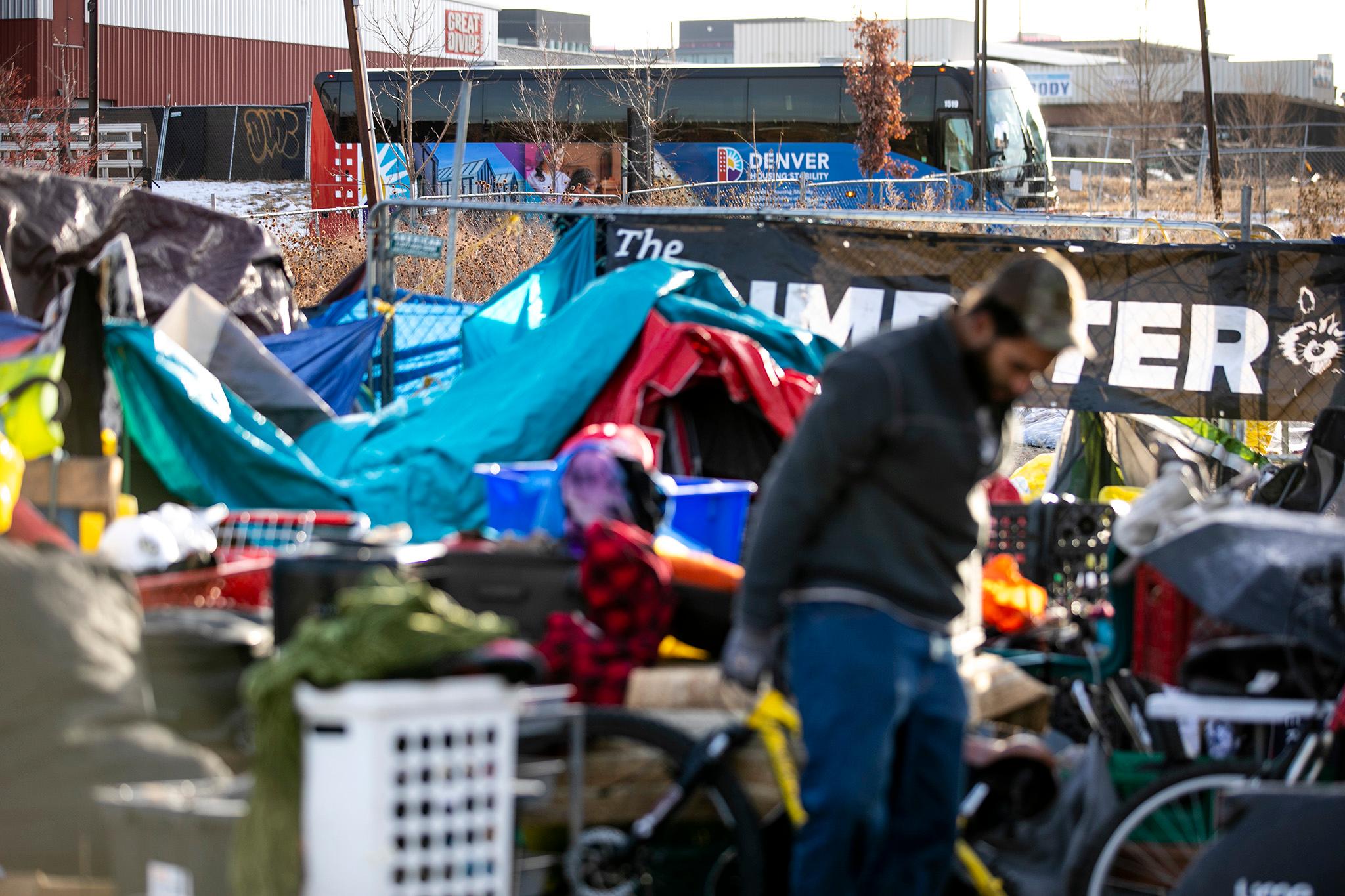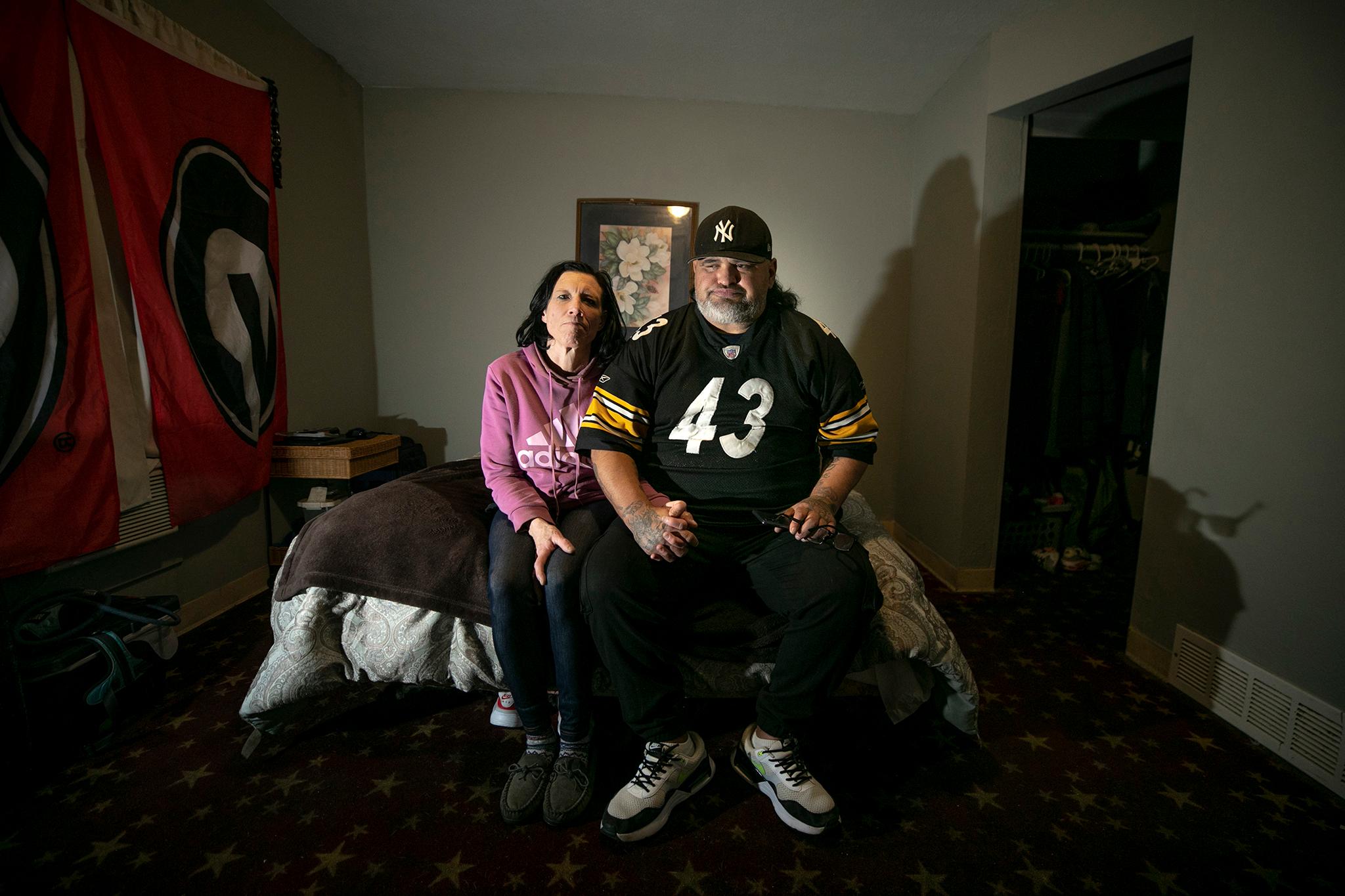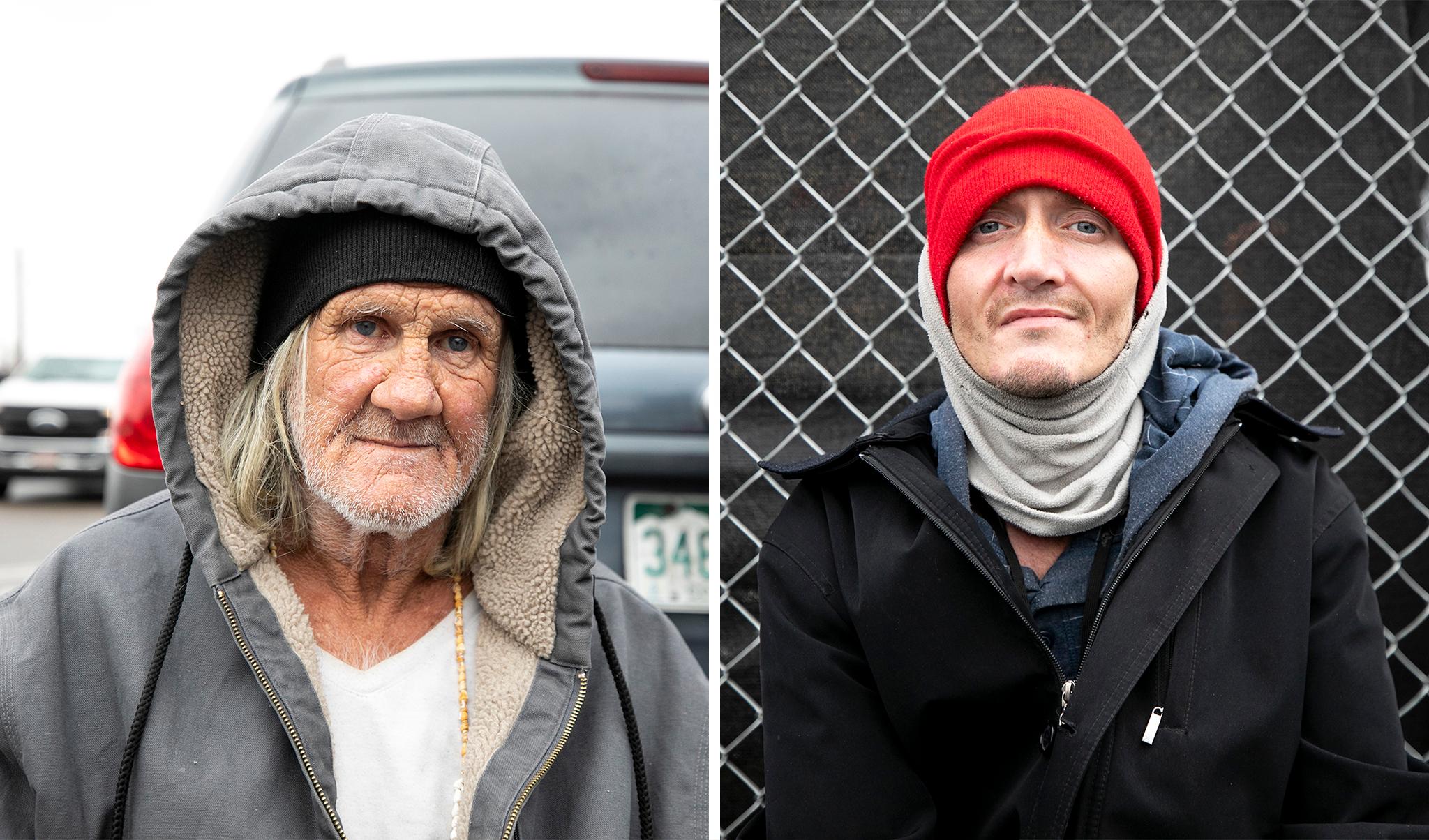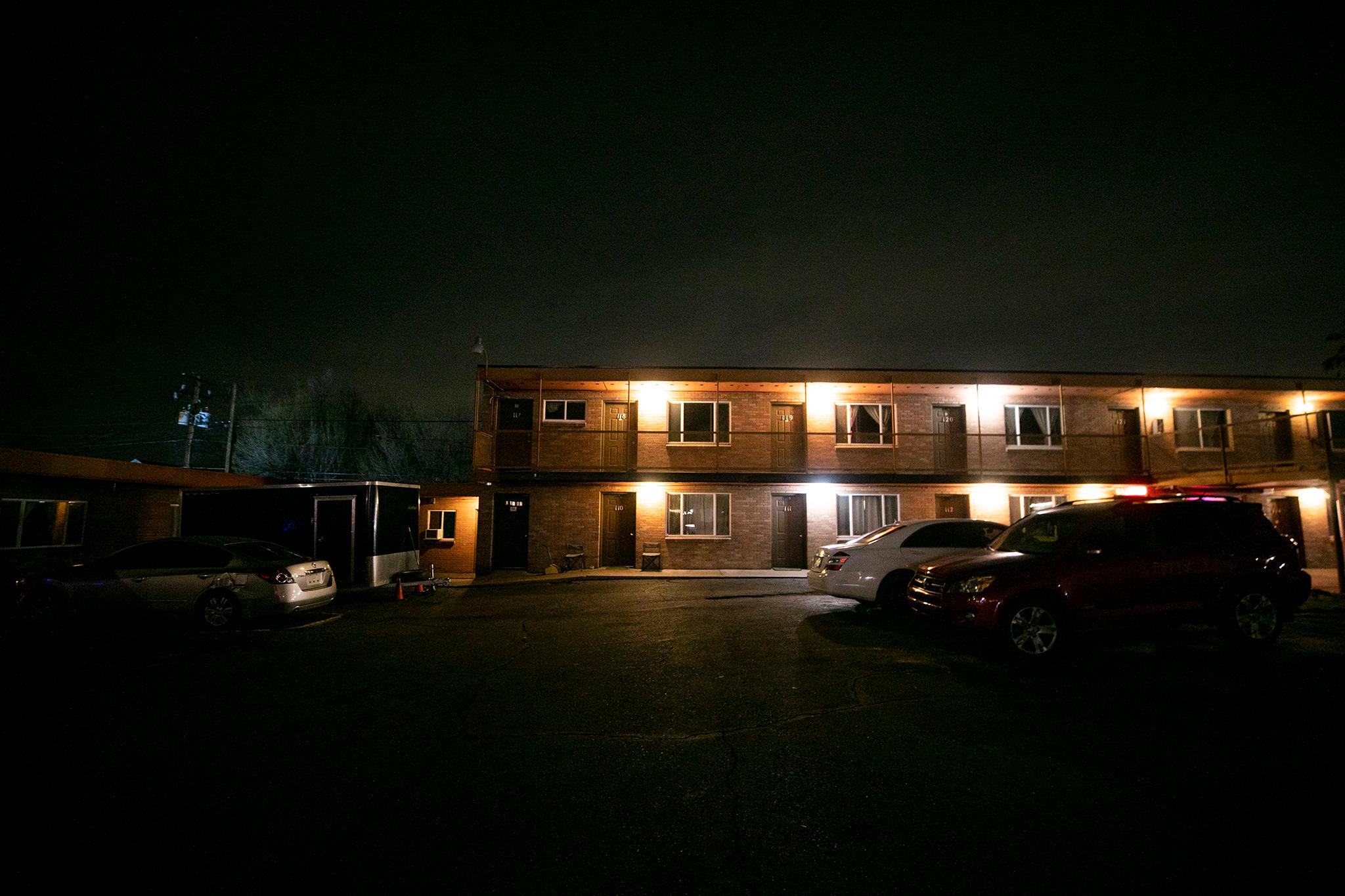Last summer, as Mike Johnston moved into Denver's mayoral office and kicked off his campaign to house 1,000 people sleeping on the streets by the year's end, Michelle and Ricky Trippy found themselves in a tent on the Sanderson Gulch Trail. It was quiet in southwest Denver, they told us, and it felt like a safer place to live compared to sprawling encampments downtown.
The couple had struggled to stay housed, Ricky told us, after a falling-out with a family member over the condo where they were living. But they weren't used to sleeping outside. By Thanksgiving, they realized they couldn't do it any longer. They've been scraping together what they can to afford an $85-a-night motel on South Broadway ever since.
All the while, they've kept tabs on Johnston's pledge to address homelessness in the city, watching as his administration "closed" those camps in the city's urban core and moved people into hotels and a tiny home village. They were left to wonder: what about people like us?
"What really kind of hacks me off is that the message I received was: 'If you didn't join an encampment, you could not get any kind of housing.' And we're refusing. I refuse to put her and my family - her, my dog - to that," Ricky told us in the small room where they've been staying. "We got overlooked. Even though we sent emails to [the Denver Department of Housing Stability], we sent emails to the mayor's office. We hit them up numerous times and said, 'What about us? There's a whole demographic you guys are missing.'"

So, what about them?
This concern has permeated conversations around House1000 from other angles. City Council members voiced similar questions during a recent update on Johnston's project, noting that shelters have long been full of people who could use a hand up, and questioning why Johnston pulled $400,000 from a program that lets people live in their cars in designated lots.
Cole Chandler, Mayor Mike Johnston's senior advisor on homelessness resolution, said House1000 is specifically not meant to serve people in the Trippys' position.
"Unsheltered homelessness is not the entire gamut of homelessness. We all understand that and are very clear-eyed about that. However, in this city in 2019, we had right around 600 people, according to the Point in Time [Count], that were unsheltered. In the 2023 count from January, we had 1,423," Chandler told us. "It's not the entire scope of the problem, but it felt like for us, the place we had to start. We had to be a city that didn't have 1,400 people sleeping on our streets."
Instead, he said people in less emergent situations should seek out things like housing support and eviction help from the Denver Department of Housing Stability (HOST).
"The Department of Housing Stability's portfolio is much broader than what we did for six months with House1000. So even though that was the public focus, there's still programs that are focused on serving that couple that exist," Chandler said.

Still, people in lottery queues can wait for years to get into affordable housing, and the city only has so many vouchers and units to offer. People sheltered in House1000 hotels are also still considered "unhoused," so they're also angling for available units.
Johnston did allocate extra voucher money for people enrolled in House1000, meaning they're not in competition for that money with people who aren't enrolled.
"We didn't come in and fundamentally change any of what that portfolio already looked like. We created a real intense focusing goal and moved everything in that direction," Chandler said.
Nonetheless, there is a growing sentiment that someone is getting skipped in line.
Danny Heath has spent the last two years living in the Salvation Army's Crossroads shelter, just off Brighton Boulevard. Yes, the mayor's work on encampments has become a topic of conversation there, he told us.
"You gotta get out and get on the street if you want a place to live," he said during a smoke break outside, adding that it's what he's heard in passing from some city employees.
Heath, and others we've spoken to at Crossroads, are more concerned with the aid Denver is providing to migrants than they are with who's being moved from sidewalks to hotel rooms. But Eric Gainey, who's been living here a month this time around, said House1000 has created a strange new dynamic.
"Yeah, I've heard people talk about that, leaving the shelter and going to set up camp somewhere," he said. "It don't really make sense."

Cathy Alderman, spokesperson for the Colorado Coalition for the Homeless, said she's heard that talk, too. With everyone clamoring for warm, private places to sleep, she's not surprised.
"We just want to get people housed as quickly as possible, but of course, there's only limited resources," she said. "In a scarcity environment, there are always going to be people who feel that they didn't get the assistance they needed."
This brewing conversation represents just one angle of the comments and criticism hurled at the mayor's office every week; to be sure, he's also hearing from people who wish he'd do less.
Chandler told us House1000 will continue to focus on encampments in 2024. He told City Council that the initiative will also focus more on keeping former encampment spots clear this year.
As for the debates and concerns swirling around all of this, Chandler said that cloud might actually be a good sign: Not many people cared to talk about this stuff a year ago.
"And so now people are debating whether or not we got it just right. How this is going to impact the landscape moving forward? How are neighborhoods going to be different, both positively and negatively? We're having a totally different conversation," he said. "I think that's a win, right?"










